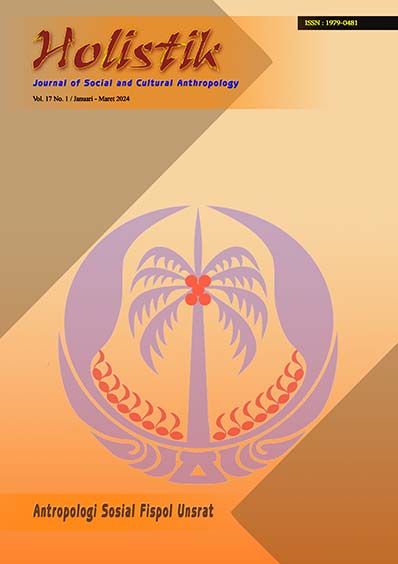KEHIDUPAN SOSIAL EKONOMI PETANI PADI DI TUMANI KECAMATAN MAESAAN KABUPATEN MINAHASA SELATAN
Abstract
Indonesia is known as an agricultural country because most of the Indonesian population has a livelihood in agriculture or farming. So that agriculture is a sector that plays an important role in the welfare of the lives of the Indonesian population. Rice is one of the national foods that has become the staple food of some of the Indonesian population. Rice farming is still the backbone of the rural economy.
The development of rice plants in Tumani Village is still in great demand by the community because it is supported by existing natural and environmental factors. One of the supporting factors is the existence of good irrigation canals that irrigate rice fields so that farmers are not afraid of drought. In rice farming in Tumani Village, the harvest season can be done by farmers up to three times a year. In addition to planting rice they also work side by side as corn or coconut farmers, other businesses and raise livestock such as pigs, cows and chickens.
Farmers in Tumani Village are divided into two categories, namely as sharecroppers and land-owning farmers. Cultivator farmers are farmers who work in other people's gardens and land-owning farmers are farmers who cultivate their own land. Social relations that are mutually beneficial to both parties, namely landowners who own land which is then cultivated by sharecroppers to meet the needs of their families.
Keywords: life, socio-economy, rice farmer

